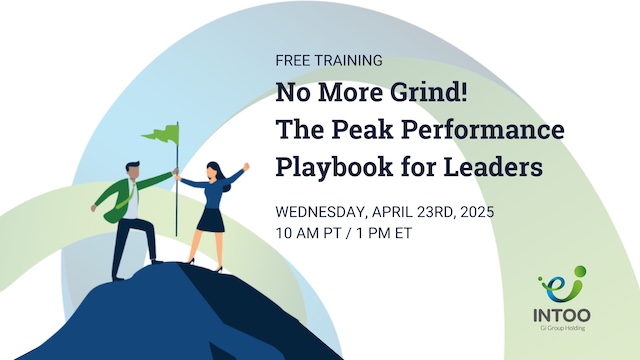You may have heard from direct or indirect sources that your organization has a negative employer brand reputation. Or maybe you read some poor reviews on Glassdoor. Whether a single aspect of your employee experience is to blame, or if there are multiple reasons, how do you determine what’s affecting your employer brand reputation? It could take some reading between the lines.
Reviews That Can Damage Your Employer Brand Reputation
Here are some common negative comments found on employer review sites like Glassdoor. What could lead to these reviews being written?
“I never heard back”
When you think about your employer brand, you may be more focused on current employees and alumni. But it’s important to remember that job candidates can and do comment on the hiring experience with your company on review sites, as well. They may talk about the interview process, how quickly your organization followed up after the application and/or interview, and whether you were open to salary negotiations.
Some candidates don’t receive timely and polite follow-ups to acknowledge receipt of their applications and to thank them for their time. Others go through one or multiple interviews, and then don’t hear back. They’re left wondering whether the hiring manager chose another candidate, if the role was canceled, or if the search is ongoing. The absence of communication can leave an applicant feeling confused and frustrated, especially since applying for a job and preparing for interviews take so much time, effort, and energy.
Having an established process for your candidate experience can make a big difference in how your organization is viewed by potential employees, and can benefit talent acquisition. It’s not only the candidates who make it to the final rounds who matter. Every candidate’s experience can contribute to your reputation and your online ratings. Following up in a timely manner and letting candidates know where they are in the hiring process is an easy and important step toward nurturing candidates. And showing that you care about those you don’t advance can boost your employer brand reputation. You can do this by offering a candidate experience platform with job search tools and resources, like a resume builder and video interview practice, to those you decline in appreciation of their interest and effort. Nurturing all candidates will engage and widen your talent pool, encourage referrals, and lead to more positive reviews.
 “No opportunity for growth”
“No opportunity for growth”
Current and former employees will often comment on growth opportunities at an organization, especially if there’s little potential for mobility and promotion. Not only can this type of comment be very damaging to an employer, if the perception is true, it can also spell danger for the success of the company. When employees feel stagnant, morale and engagement can dip along with productivity. Employees need potential for advancement, as well as the ability to move laterally into another department or role. Without it, they may not have a reason to remain loyal to the company, and worse, they may discourage those who consider applying for employment with the organization from doing so.
Facilitating this movement and growth for your employees with career development resources such as career coaching can help an organization retain and attract talent, develop leadership and plan for succession, and cope with voluntary or involuntary departures through diversifying skills. Courses and workshops to build upon existing skills or acquire new ones can motivate team members, especially when paired with guidance from a career coach to create a specific strategy for each individual’s particular goals. This type of program can demonstrate to a workforce that their employer cares about their success with the organization and beyond. Companies that are widely known to offer career development to their employees attract top talent and generally have positive consumer reviews as well.
 “They don’t care about their employees”
“They don’t care about their employees”
While there are many touch points throughout the employee lifecycle where the treatment by the employer can make a difference, layoffs are one that can have the most negative impact on a company’s reputation. Depending on how the layoffs are handled, an employer can be viewed as compassionate and responsible or uncaring and dismissive.
When employees are let go with little severance and no guidance on how to manage the challenging post-layoff period, the hurt and confusion they experience by losing their job can be magnified. Individuals impacted by layoffs need help navigating unemployment, job searches, and the stress that comes with being unexpectedly without a job. Without help in these areas, not only may they vent about their experiences online, but the colleagues they leave behind may also harbor negative feelings toward their employer.
Layoffs will never be a positive experience, however, they can be made easier by giving those impacted the resources they need to regroup, gain optimism about their future, and find meaningful new employment. One important benefit that fulfills this need is outplacement, which is a service that pairs career coaching with a digital platform of job seeker resources to help with creating a resume and cover letters, practice interviewing, learn networking skills, and more. Having an expert career coach in one’s corner can be motivating and encouraging and help someone who’s been laid off move on from any negative feelings about their experience. When employees are given the tools they need to succeed after they walk out the door (involuntarily), they and their remaining colleagues can feel better about the employer even in a difficult and unpleasant situation.
Actively Manage Your Employer Brand Reputation
Managing your online employer brand reputation isn’t a passive effort. It requires actively protecting, monitoring and responding to issues and events that could affect how the public and members of your organization view you. Moreso, it requires taking the preventative steps to reduce the likelihood of unfavorable impact to your reputation to begin with. Now that you know some of the root causes contributing to a negative reputation, you can work to prevent or overcome it. INTOO helps employers of all sizes with cost-effective solutions for every stage of the employee lifecycle, including candidate experience, career development, and outplacement services. Contact us to learn how we can make a difference for you and your employees.
Robyn Kern is a seasoned business writer who has written in the HR, education, technology, and nonprofit spaces. She writes about topics including outplacement, layoffs, career development, internal mobility, candidate experience, succession planning, talent acquisition, and more, with the goal of surfacing workforce trends and educating the HR community on these key topics. Her work has been featured on hrforhr.org and trainingindustry.com.


 “No opportunity for growth”
“No opportunity for growth” “They don’t care about their employees”
“They don’t care about their employees”








